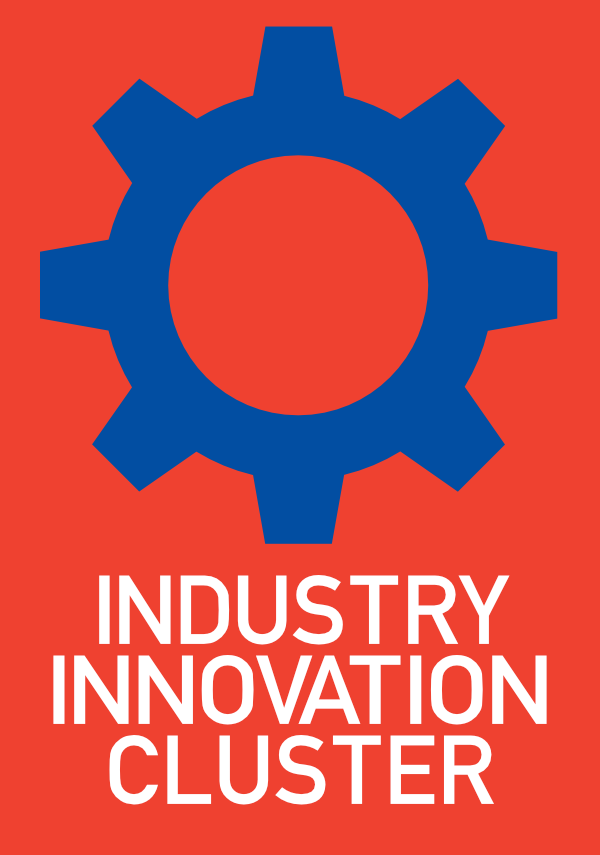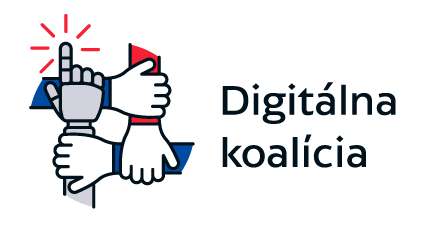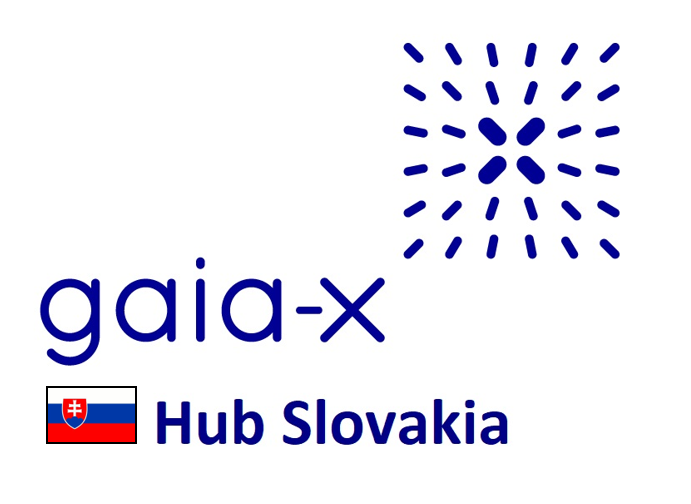LIFE IN A DEMOCRACY IN THE PERIOD OF DIGITAL TRANSFORMATION
We are entering a time when digital transformation will remodel not only the way we live and work, but also the way we engage in the democratic process. It is vital that we use these changes to strengthen democracy and ensure that the values of transparency, equality and participation remain firmly rooted.
As technology grows, our society becomes even more interconnected, but with this comes new challenges. This is why we decided to create the "10 principles for living in a democracy in the era of digital transformation" that will help us follow proven values in our modern era.
Therefore, we call on companies and organizations in Slovakia to join this initiative and, thus, become carriers of this important message for democracy in the 21st century. Together we can create an environment where digital tools and technologies serve to strengthen the voice of every citizen and ensure that the democratic process is open, transparent, and inclusive.
Together, we can ensure that digital transformation takes democracy forward, and your business plays an active role in creating a better future for all of us.
Join Us!
Send us an email to which we can send you the full text of the opinion and through which we can communicate with each other.
10 PRINCIPLES FOR LIFE IN A DEMOCRACY
1. LET US ALWAYS REMEMBER THE FUNDAMENTAL PILLARS OF DEMOCRACY
In the era of digital transformation, we must constantly remind ourselves of the principles of a functioning democratic society. Digital transformation, like most of the leaps and bounds involved in dramatic change, is a great opportunity to strengthen democracy, as well as a potential threat. It is up to us whether we use these new tools and especially the increased effectiveness of communication, cooperation, production and trade to strengthen the democratic processes or risk the opposite occurring.


2. REGULATION WILL NOT SOLVE EVERYTHING
In addition to legislative rules, the respect for and observance of ethical and moral principles will become increasingly important, since the ability of democracies to respond to the rapid changes in the digital economy is limited. Without a clear value framework, it will be difficult to define the boundaries of what is right or acceptable in business, as well as in everyday life.
3. LET US PROTECT FREEDOM OF INFORMATION
Free access to information, freedom of expression and a pluralistic dialogue are pillars of democracy. Therefore, we must prevent the deepening of information asymmetry through the availability of digital technologies and, at the same time, continuously invest in educating all the generations so that they are able to understand and participate in the processes around them, are able to critically sort and process information, and thereby make the best possible decisions.


4. LET'S INCREASE CIVIC PARTICIPATION
Digital transformation brings new opportunities to promote civic participation and engagement, so let's invest in inclusion, not exclusion of people from public affairs and discourse. We need to keep the digital space open, transparent, inclusive, and pluralistic. A society that supports or tolerates discrediting or even discriminating against people based on opinion is doomed to stagnation, because only a constructive conflict of ideas and opinions and a pluralist dialogue moves us forward as a society and as an economy.
5. LET'S BUILD INDEPENDENT PUBLIC INSTITUTIONS
Let us strengthen the independence and competence of public law institutions and supervise their activities so that they gain and maintain public trust in the fields of dissemination of information and the creation of legislation. Digitalisation dramatically increases the possibilities for manipulation, but also for the transparency of the flow of information, so more than ever we will need independent institutions under public scrutiny. Otherwise, institutions or organisations whose independence will be merely subjective will take over such a role.


6. LET'S STRENGTHEN SOCIETY-WIDE SOLIDARITY AND EDUCATION
In a digital society, the risk of poverty and absolute exclusion from social and economic life increases, so let us invest as much as possible in the education of the population, digital literacy, and social dialogue within both the public and private sectors. If people feel excluded under the pressure of digital transformation, they will lose faith in their own abilities, employability, or their participation in social life. Democracy will then lose its fundamental pillar - the citizen.
7. LET'S USE NEW TECHNOLOGIES FOR THE BENEFIT OF DEMOCRACY
Let 's strengthen transparency and a respect for the rules of debate in the digital space in order to strengthen its freedom and quality, while emphasizing the responsibility of the actors. Technologies, such as artificial intelligence, can significantly reduce or, conversely, exacerbate the information imbalance in public discourse. It can also be misused to generate anonymous and manipulative content. Nonetheless, it can also help us increase transparency and credibility.


8. LET'S ANALYZE THE IMPACT OF DIGITAL TRANSFORMATION ON OUR LIVES
Let 's support a broad societal debate regarding the impacts of modern digital technologies on the development of human society and use emerging digital solutions to strengthen democracy, spread humanism and foster education. We do possess the means to constantly monitor, analyze and manage the processes of digital transformation, so that the impact on society is positive, sustainable and trustworthy.
9. LET'S KEEP AN EYE ON THE ETHICAL DIMENSION OF NEW TECHNOLOGIES
Algorithms, AI systems, metaverses and other modern technologies which are entering the digital transformation process must be ethical, transparent, and human-friendly, so that everyone is guaranteed the freedom to use them, but at the same time they are made accountable. The codes of ethics and principles we implement for our employees, suppliers or customers must fully respect human dignity and fundamental rights in the digital environment. If we cannot guarantee these for some specific systems, then, they need to be refined.


10. LET US ALWAYS THINK ABOUT SAFETY
Let 's devote maximum effort to securing digital systems so that all its participants - citizens, entrepreneurs or representatives of public institutions feel safe in such space. The full participation and interaction of citizens or institutions in a digital space is only possible if a sense of security is ensured.
NEWS AND EVENTS
Podcast 2nd part
Together with Gabriel Galgóci, CEO of AT&T and President of the American Chamber of Commerce in Slovakia (AmCham), we as the Industrial Innovation Cluster, which together with other stakeholders created 10 Principles for maintaining democracy during the digital transformation, talked about the importance of using them in practice .
Another discussant was Martin Jacko, who brought an insight into legislation and ensuring democracy during the digital transformation. Martin Jacko is a managing partner at Lansky, Ganzger, Jacko & Partner and also serves as a member of the board of directors of the largest compliance initiative in Slovakia – the Slovak Compliance Circle.
All involved are leaders in digital transformation. Digital transformation has a positive impact on our future, but there are also some challenges associated with it... We have even moved from democracy to the possibility of a new way of functioning of society - algorithmocracy. If you want to know more, listen to our podcast. Martina Le Gall Maláková, representative of the Industrial Innovation Cluster, will accompany you through the discussion.
Podcast 1st part
Spring ITAPA 2023
We are very happy to bring you the first part of our podcast, which deals with one of the most important topics of today - maintaining democracy in the age of digital transformation. This discussion was led by the President of the Industrial Innovation Cluster, Mrs. Martina Le Gall Maláková, and we welcomed two exceptional guests.
The first guest is Ms. Júlia Steinerová, who works at Slovak Telekom and holds the position of Public Affairs, where she is in charge of relations with the government, parliament and the European Union. The second guest is Mr. Emil Fitoš, president of the IT Association of Slovakia and chairman of the European digital innovation hub - the Slovak Center for Digital Innovations
.This video captures important moments from the Spring ITAPA 2023 conference, as well as the main points of our 10 principles for living in a democracy in the era of digital transformation. On stage, together with renowned experts and leaders, we presented a series of principles that are crucial for democracy in the rapidly changing digital age. These principles show us the way to ensure that democracy remains strong, open and inclusive in this age of increasing digitization.
Together we can build a better future where technology and democracy work together for the good of all citizens. We hope that this entry will inspire and encourage you to join this exciting journey.
INTERESTING LINKS
- MIRRI: Digital transformation strategy of Slovakia 2030 (SK)
- European Eco. and Social Comm.: Digital transformation in the EU region (SK)
- European Commission: Digital Education Action Plan (2021 – 2027) (SK)
- European Commission: Excellence and trust in artificial intelligence (SK)
- European Commission: Digital Services Act (SK)
- European Commission: Fair and open digital markets (SK)
- European Commission: European Data Strategy (SK)
- European Commission: European Industrial Strategy (SK)
- European Commission: Digital skills and jobs (EN)
- European Commission: High Performance Computing (EN)



